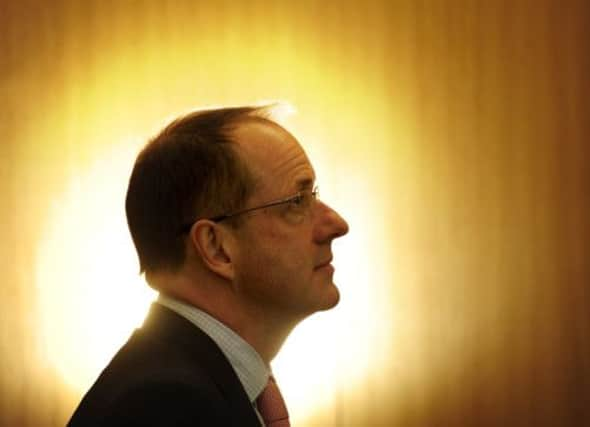Witty quits Whitehall as China scandal hits Glaxo


The company said Sir Andrew Witty would quit his post as a senior independent director on the board of the Department for Business, Innovation and Skills (BIS) at the end of the year.
It stressed the move had been planned for some time and was not a result of the latest accusations against Glaxo, which is facing claims of widespread corruption in China.
Advertisement
Hide AdAdvertisement
Hide Ad“His decision is not related in any way to the current issues the company is facing in China,” Glaxo said.
But commentators pointed to the timing of his announcement, which came as the scandal in China took a turn for the worst.
The firm’s China-based finance director was banned from leaving the country as authorities investigate claims that millions of pounds were funnelled through travel agencies to bribe doctors and health officials.
Steve Nechelput has been told that he cannot leave, although he is free to move around the country. Glaxo stressed that he had not been detained or questioned in relation to the bribery probe.
Police in China have accused the firm of transferring up to 3 billion yuan (£321.30 million) to 700 travel agencies and consultancies over six years to facilitate a campaign of corruption.
Glaxo has said it is deeply concerned by the allegations, which it called “shameful”.
Four senior Chinese executives from the company have been detained by police, including vice-president and operations manager Liang Hong, who told state television he had funnelled money through travel agencies by arranging conferences, some of which were never held.
With investigations focused on malpractice by certain of Glaxo’s Chinese employees, one industry insider said it was likely China wanted Nechelput to remain in the country to provide financial information, if needed, as enquiries progress.
Advertisement
Hide AdAdvertisement
Hide AdChina has long been known for a culture in which drug companies make payments to doctors as they rely on rewards for writing prescriptions to offset meagre salaries. But such practices are increasingly at odds with a crackdown on corruption under president Xi Jinping and premier Li Keqiang, leaving companies struggling to toe the line while not forgoing business in a highly competitive market.
Glaxo’s gifts are said to have been illegally provided in order to boost sales and raise the price of medicines. There were also claims of “sexual bribery” as part of the alleged scam.
GlaxoSmithKline has recently faced allegations by the Office of Fair Trading that it paid off rivals to delay the launch of cheap alternatives to one of its top drugs. The company says it acted lawfully. And last summer it was fined $3bn (£2bn) for the biggest healthcare fraud in US history after it admitted paying medics to prescribe a drug to children when it was intended for adults.
The Chinese scandal is the latest blow to Witty, who has been battling against Glaxo’s reputation for corporate bad behaviour since taking the helm in 2008.
He has shared the company’s old research information and created a patent pool and an open research lab to tackle neglected tropical diseases. He was given his knighthood last year.